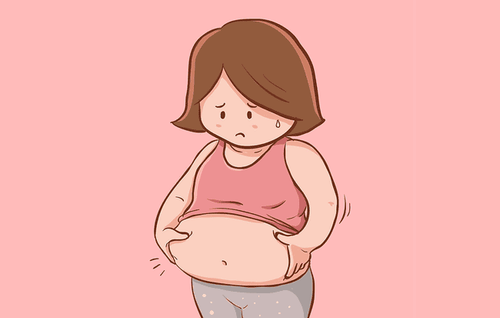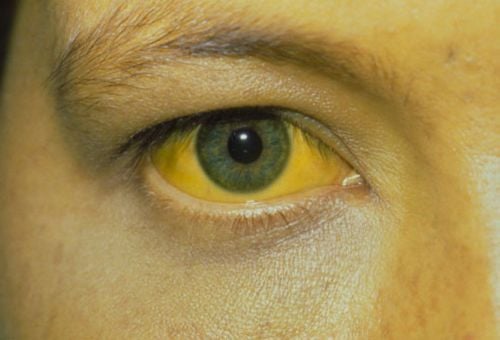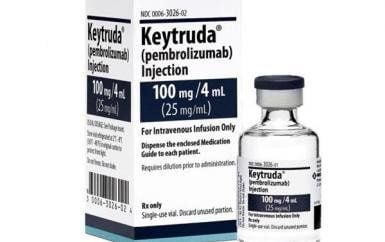This is an automatically translated article.
The article is professionally consulted by Master, Doctor Nguyen Thai Binh - Gastroenterologist - Department of General Surgery - Vinmec Ha Long International General Hospital. Master, Doctor Nguyen Thai Binh has more than 20 years of experience working in abdominal surgery.Currently, the rate of people suffering from obesity is increasing day by day. Many people have tried all ways to lose weight such as adjusting their diet, exercising, taking medicine but all have not been successful, even the weight is still increasing uncontrollably. At this time, surgery is the last resort to treat this condition. With the advancement of medicine, gastric bypass surgery for unresolved obesity is becoming popular and trusted by many patients.
1. What is gastric bypass surgery?
Gastrectomy is the removal of part or all of the stomach. The main purpose of this surgery is to treat cases of cancer and obesity.Gastric bypass surgery usually has 4 main types, including:
Gastric Sleeve : is a method of removing about 80% of the stomach and creating a tubular stomach. After the surgery, the patient will feel less hungry and fuller faster after eating. Gastric Bypass: A procedure that creates a smaller stomach pouch and is then connected to the small intestine to help patients feel fuller faster and reduce mineral absorption. Lap Band: The doctor will make a belt around the upper part of the stomach and form a small pocket above the belt. Through this method, the stomach is filled faster when eating, creating a feeling of fullness faster for the patient. Duodenal Switch: The doctor removes a large portion of the stomach volume similar to a tubular gastrectomy. Pancreatic cholangiopancreatography means intestinal diversion and cholecystectomy. The effect of this method is similar to the above methods, patients feel full faster and the body absorbs fewer calories and minerals than usual. It can be said that each method of gastric bypass surgery has its own advantages and disadvantages. Among them, the surgical method of creating tubular gastritis, gastric bypass and pancreatic bile flow transfer has been shown to have high weight loss results and improve the patient's health. However, these methods require longer hospital stays and recovery, requiring the patient to follow a stricter diet after surgery.
2. When should gastric bypass surgery be performed?
Gastric bypass surgery is an effective fat loss method, which eliminates and significantly improves the general health problems as well as the psychology of people with obesity and overweight.However, patients should also be aware that gastric bypass surgery is only a last resort, because it is not a suitable option for all people with obesity, even if the patient is obese. all the necessary conditions to perform surgery.
Patients will be eligible to perform gastrectomy when they meet at least the following requirements:
Have a BMI over 40 or cases with BMI from 30-39.9 with the following conditions: serious medical conditions such as high blood pressure, diabetes, sleep apnea, high cholesterol or joint problems, etc. Excess weight (at least 36kg) People who are obese, overweight weight gain between the ages of 18 and 75 People with a history of weight loss failure Patients should be aware that surgery is only one part of the whole process of obesity treatment. In addition to surgical treatment, patients also need to combine with medical treatment and psychological treatment. In particular, patients need to build a scientific diet and maintain it strictly according to that regimen, combined with moderate exercise to achieve long-term weight loss effects.

3. Gastric bypass surgery
Preparing for a gastrectomy You will be asked to have blood tests and imaging tests before your gastrectomy to make sure you are healthy enough to undergo surgery. The doctor will also do a complete physical exam of the patient and make a general assessment of the medical history.During your physical exam, you should tell your doctor:
Any medications you are taking, including over-the-counter medicines and dietary supplements. You may have to stop taking certain medications before having surgery. If you are pregnant, there is a chance that you may become pregnant or have other health conditions such as diabetes. In case you are a regular smoker, you should stop smoking. Because smoking can make the wound worse and take longer to heal after surgery. In addition, smoking can also bring some complications for people, especially complications related to infections and lung problems. Gastric bypass surgery Gastrectomy for obese patients usually takes about 4-5 hours if the doctor performs open surgery. In addition, the doctor can also perform laparoscopic surgery depending on the condition and health of each person. Although the laparoscopic approach takes less time, it is not widely used:
Open surgery: involves a single large incision. The doctor will pull on the skin, muscles, and tissue to make it easier to access the stomach. Laparoscopic surgery: is a minimally invasive form of surgery, consisting of small incisions and specialized tools to perform. Endoscopic methods are usually less painful for the patient and the recovery time is also faster. This type of surgery is also known as “keyhole surgery” or laparoscopic-assisted gastrectomy (LAG). This method is more effective and safer than open surgery. However, this form is often indicated for the treatment of certain conditions such as stomach cancer.
4. Results after gastric bypass surgery

After gastric bypass surgery, the amount of weight loss will depend on the surgical method used and the patient's compliance with instructions from the doctor. Depending on height, weight, and the method of surgery, many obese patients can lose about 45kg (equivalent to 100 pounds) or even more after just 12-18 months.
In addition, the outstanding advantage of gastric bypass surgery for the treatment of obesity is that it significantly improves the quality of life of 95% of patients and reduces the risk of death in the first 5 years by 89%.
For patients with obesity and other comorbidities, surgery is the best treatment option. After surgery, patients can reduce the risk of cardiovascular disease by 82%, the rate of patients with migraine is 57%, the condition of gastroesophageal reflux can be resolved on 98% of patients, patients depression is 55%, sleep apnea is 74-98%, pseudotumor is 96% of patients,...
5. Complications of gastric bypass surgery
Some of the side effects that patients may experience after gastric bypass surgery to lose weight include:Diarrhea, nausea, vomiting Acid reflux Rapid empty stomach syndrome Infection of the surgical site Infection in the chest Stomach leak at the incision Internal bleeding Leakage of acid into the esophagus causing scarring, narrowing or spasm Vitamin deficiency Small bowel obstruction Weight loss Shortness of breath Pneumonia Damage to nearby structures When If your small intestine has to digest large amounts of food at once, you may experience nausea, cramps, or diarrhea. These symptoms can occur within 1 hour of eating. In addition, blood sugar levels rise and fall rapidly, causing you to sweat, heart palpitations, body fatigue and confusion. To relieve these symptoms, after gastrectomy, you should follow a healthy diet and follow it strictly. It can take about 3-6 months to adjust to the right diet for you.
6. Recovery after gastric bypass surgery for weight loss

For the first 4 weeks after gastric bypass surgery, you should drink liquids and eat pureed foods After the first month, you can switch to eating soft foods or hard, but be careful to chew slowly and thoroughly before swallowing Do not eat and drink at the same time Avoid high-calorie sodas and fast foods Take vitamins and minerals every day Eat small meals throughout the day Avoid foods High-fiber foods Eat foods rich in calcium, iron, and vitamins C and D After 2 or 3 months, you can switch to regular meals. But remember, you won't be able to eat as much as you used to. For patients undergoing gastric bypass surgery, don't eat too much and too quickly, because it can lead to increased risks. stretching the remaining small stomach, leading to weight gain For people who have gastric bypass surgery, sugar should not be eaten to avoid uncomfortable digestive problems People who have had gastric bypass surgery The stomach belt will be difficult to swallow if eaten too quickly, the patient should eat more within 30 minutes after eating. Patients undergoing pancreaticoduodenectomy should take vitamin supplements to avoid malnutrition
Please dial HOTLINE for more information or register for an appointment HERE. Download MyVinmec app to make appointments faster and to manage your bookings easily.
Article referenced source: Webmd.com













